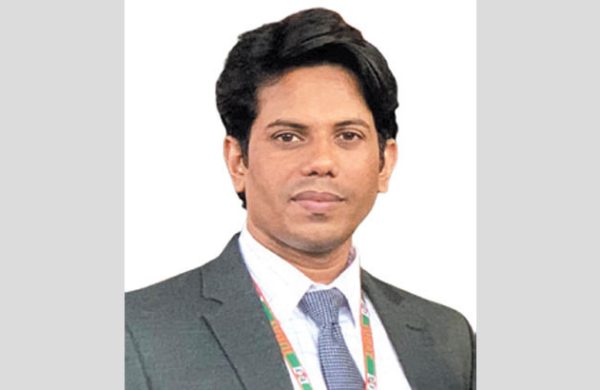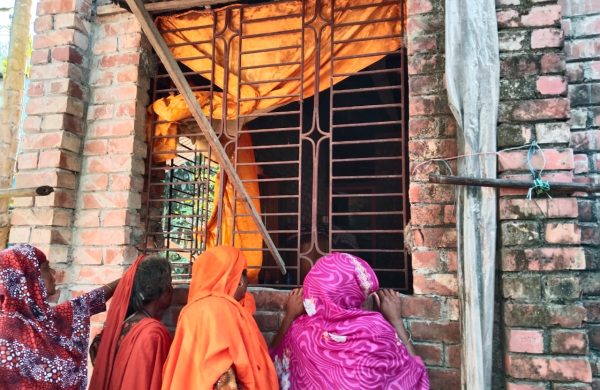Crossing the IMF Tide!
- Update Time : Saturday, January 25, 2025

–Kaniz Kakon–
Bangladesh finds itself at a critical juncture as the International Monetary Fund (IMF) tightens its grip on the government’s revenue generation strategy, pushing for tax reforms that many believe will exacerbate socio-economic inequality. With tax collection set to become a Quantitative Performance Criterion (QPC) under the $4.7 billion loan programme, the pressure on the government to meet ambitious revenue targets is mounting. While the IMF’s structural adjustments are intended to ensure fiscal sustainability, the growing discontent among citizens and the apparent inefficiencies in governance reveal deeper structural challenges that must be addressed with urgency.
From a human rights perspective, the IMF’s policies raise significant concerns about the right to an adequate standard of living, enshrined in Article 25 of the Universal Declaration of Human Rights (UDHR). The sudden tax hikes and increased VAT disproportionately affect low-income groups, limiting their access to essential goods and services. This highlights the tension between economic policy and social rights, where fiscal reforms driven by global financial institutions often neglect the socio-economic realities of vulnerable populations. Contemporary critiques of global financial systems, such as the concept of “global governance without global government,” underscore the lack of accountability and transparency in international lending institutions. These systems often enforce policies that prioritise fiscal metrics over human dignity and equity, turning developing nations into pawns in a global economic chess game.
The crisis Bangladesh faces is multi-faceted, like a storm battering a fragile vessel on rough seas. Its low tax-to-GDP ratio—the anchor that could stabilise its fiscal ship—remains weak due to inefficiencies such as poor compliance, excessive corporate exemptions, and inadequate enforcement. Instead of steady reforms, the government’s response has been akin to patching a leaking boat with flimsy bandages: sudden mid-year tax hikes on nearly 100 goods and services have disproportionately burdened the lower-income population. These policies, introduced amidst soaring inflation, have ignited public outrage, culminating in protests that call for deeper systemic changes. The imagery of a “fractured foundation” fits here, where cracks in governance risk collapsing under the weight of public dissatisfaction. Furthermore, the inability to address these issues reflects a deeper misalignment between short-term fiscal goals and long-term developmental needs, exacerbating the public’s sense of economic injustice.
Examples from around the world illustrate the complexities of IMF-led reform. In Ghana, similar austerity measures tied to IMF loans led to public unrest, with citizens demanding relief from rising costs and perceived economic injustice. In Argentina, decades of IMF involvement created cycles of debt, inflation, and social inequality, which culminated in mass protests against austerity policies. These cases serve as cautionary tales for Bangladesh, underscoring the need to approach IMF conditions with both caution and a clear focus on protecting vulnerable populations from undue hardship. They highlight how overreliance on external prescriptions can destabilise economies unless accompanied by robust domestic strategies.
One of the core solutions lies in strengthening institutional mechanisms to recover defaulted loans and enforce compliance within the tax system. Like repairing a faulty engine, this requires investing in capacity-building for the National Board of Revenue (NBR) and reducing reliance on indirect taxes such as VAT. A recalibrated tax policy must focus on high-income groups and corporations that currently benefit from unjustifiable exemptions, ensuring that wealthier segments contribute their fair share. Additionally, addressing the inefficiencies of informal remittance systems like “Hundi” could channel much-needed revenue into formal state coffers. This approach, akin to clearing clogged economic arteries, could rejuvenate the fiscal health of the nation. Anti-corruption measures should also be prioritised to build public trust and ensure the equitable distribution of resources. Effective implementation of these reforms would not only stabilise the economy but also set a precedent for transparent governance.
From a philosophical lens, the IMF’s insistence on stringent fiscal measures reflects a utilitarian logic that sacrifices individual well-being for collective financial stability. Contemporary thinkers argue that such approaches ignore the moral imperative of distributive justice. The global financial architecture, as critics describe, often resembles a gilded cage where the aspirations of developing nations are constrained by the economic priorities of wealthier states. Solutions should align with the principle of “economic dignity,” where policies are crafted not only for fiscal metrics but for the intrinsic value of each individual’s rights and opportunities. Introducing a framework for global financial accountability—a “social contract” among nations—could mitigate the exploitative tendencies of current systems, ensuring that economic reforms honour the dignity of all stakeholders.
Bangladesh’s future demands visionary leadership that balances fiscal responsibility with social equity. As a Nobel Prize-winning economist and the current Chief Advisor of Bangladesh, Dr. Yunus is well-positioned to address these challenges effectively. His expertise should guide strategies to resolve key issues swiftly while laying the foundation for sustainable growth. Delaying QPC implementation through IMF negotiations could provide the breathing space needed for gradual reforms prioritising public welfare. Institutional reforms must also be paired with public discourse, treating citizens as active participants in shaping the economy. Greater transparency and avenues for public engagement can empower citizens as co-navigators of the nation’s journey. By grounding efforts in justice and accountability, Bangladesh can turn economic challenges into opportunities for inclusive growth and national resilience, steering toward a future where all feel invested in its success.
_______________________________
The writer is an Assistant Professor in the Department of Philosophy at IUBAT and pursuing a Masters in Human Rights and Multiculturalism at University of South Eastern Norway



















